The best BBQ Delivery Boxes in the UK from small sustainable British Farms
Do you know what’s fuelling the pressure on our seas? – Our growing demand for fish. Global human consumption of seafood has doubled since 1980 and it continues to rise.
These days, it would feel reassuring to see that almost every brand of fish – fresh, frozen or canned – is ‘sustainable seafood’ in some way. However, when close to 90% of fish is either overfished or fished to its maximum limit, it’s clear something doesn’t quite add up.
The numbers are shocking.
In 2018, almost 100,000 million tonnes of wild fish were captured, according to The UN Food and Agriculture Organization (FAO). A further 114.5 million tonnes are produced in fish farms. Yet, the FAO also reports that around a third of all fish, crustaceans and molluscs harvested from oceans, lakes and fish farms are wasted or lost before they ever reach a plate.
As such, worse than simply not adding up, these sustainability claims could be potentially causing the ocean more harm. This is because they make us feel better about the fish we’re buying (and the damage we’re causing) rather than encouraging us to change our buying habits (and encouraging fishers to change their fishing practices).
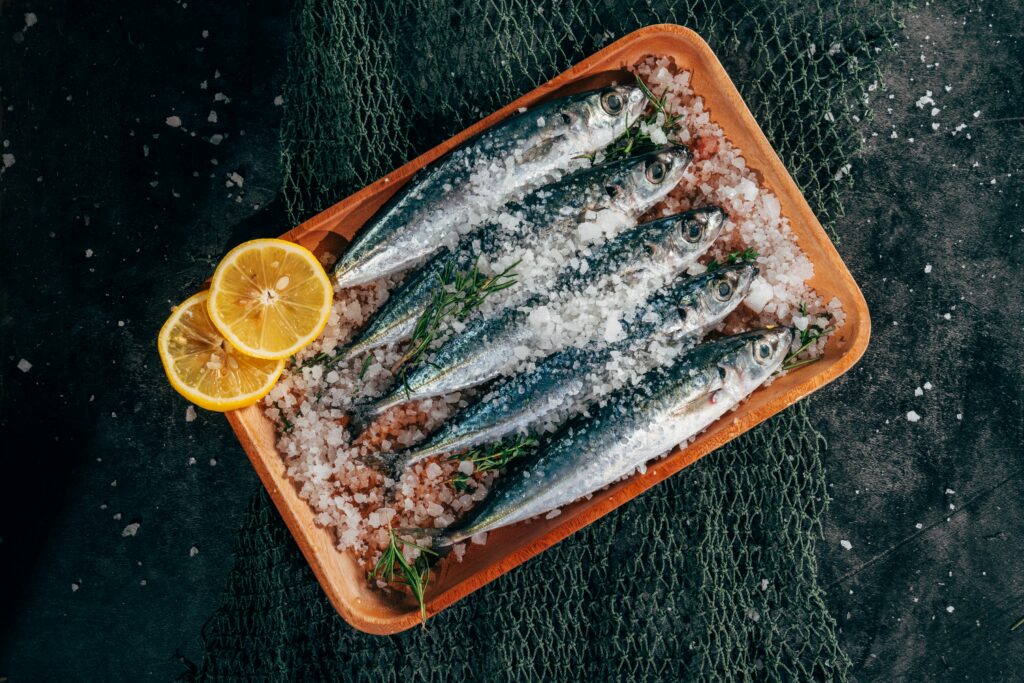
The sustainable seafood myth
So, how do you know when you’re buying genuinely sustainable seafood?
Do you look for the MSC blue tick? Do the words ‘gastro’ or ‘finest’ or ‘wild’ make you feel better about what you’re putting in your basket?
What if we told you that it’s highly unlikely these mean what you expect them to?
Mainly that none of these terms mean ‘sustainable’.
Not even the MSC-certified blue-tick label, which the WWF (who helped to set MSC up in 1996) have now publicly expressed their concerns about.
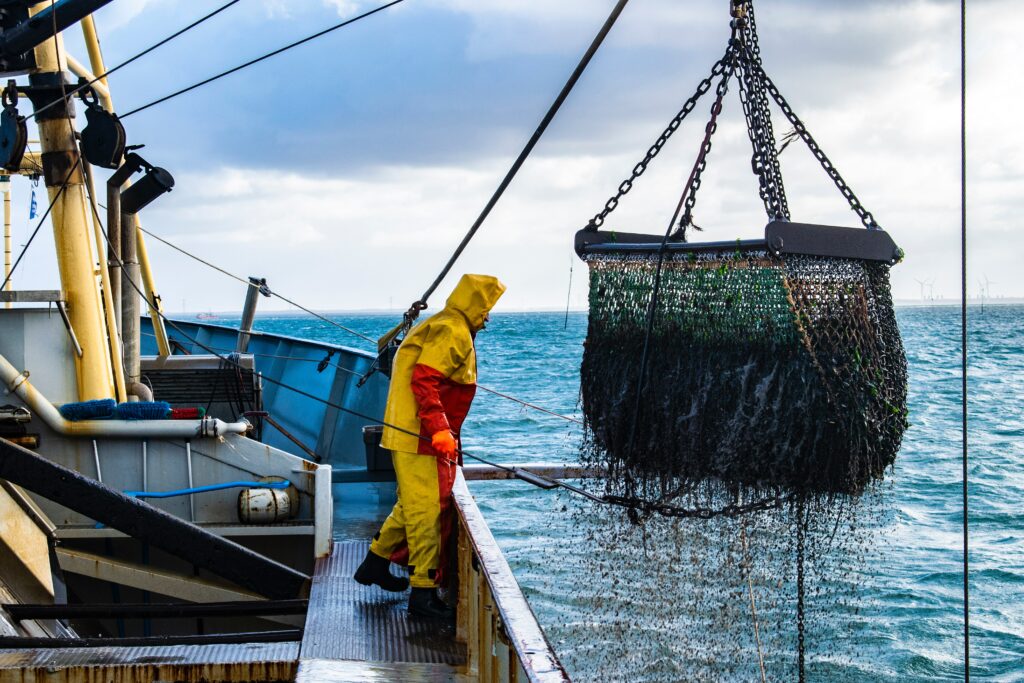
Sustainable seafood? The realities of modern-day fishing
The MSC certifies around 50% of UK landings and 20% of global catch, accounting for more than 10 million tonnes of fish a year.
It claims it is an independent, non-profit organisation that sets a standard for sustainable fishing.
When you hear the term ‘sustainable fishing’, what do imagine? Do you envisage a small little boat with a few fishers? The type with a twinkly-eyed, white-bearded captain, for example?
Sorry to break it to you, but the reality is not quite so idyllic.
Industrial operations, whose colossal boats can be 1.5x longer than a football pitch, now cover more than 55 percent of the ocean surface. They also use hugely destructive fishing practices like trawling, long lines, gillnets and dredging.
Trawling and similar fishing methods lead to huge amounts of by-catch – the marine life that gets caught up in the nets but we don’t eat.
To put the by-catch into perspective, it’s reported that a staggering 11,000-30,000 sharks alone are killed every hour.
One of the biggest MSC tuna fisheries lists no less than 80 species of by-catch. It claims these are by-catch in “acceptable numbers” – including sharks, dolphins, whales, and turtles1.
Even more scarily, these are just the numbers the company reports. No one is verifying this, which means they could be significantly higher.
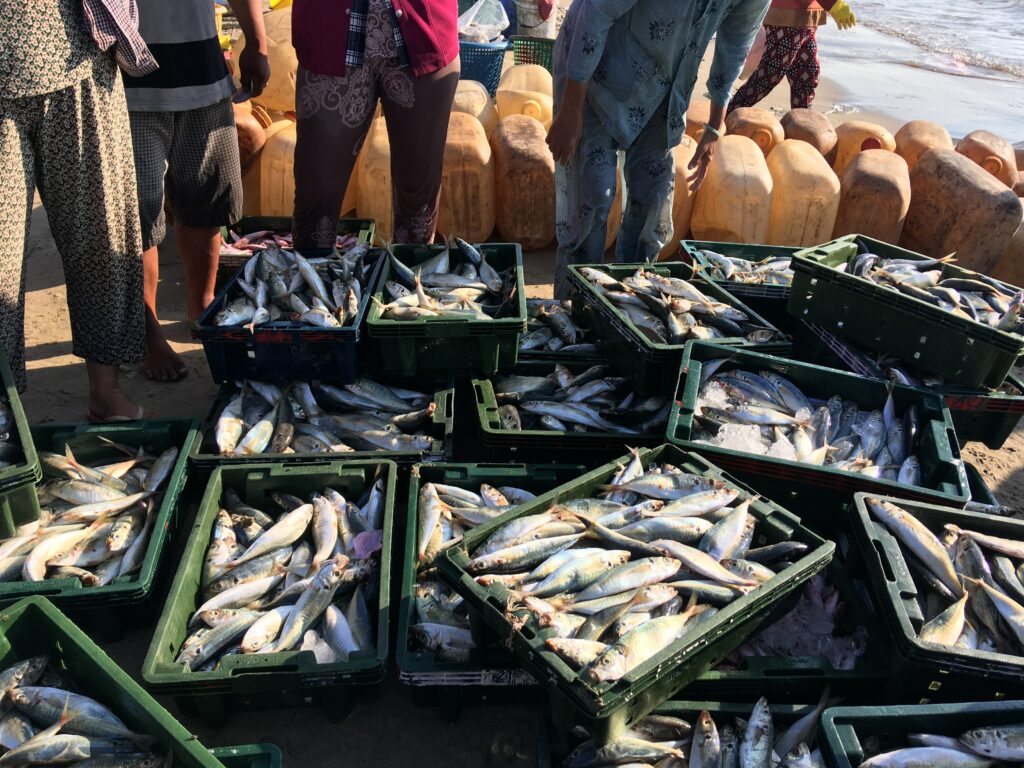
Sustainable seafood? The scale of the problem
Now, of course, not all small boats are picture-perfect. They absolutely also can be guilty of illegal fishing, overfishing, and using harmful fishing methods such as trawlers and longliners.
But, in terms of tonnage of fish captured, there is a huge difference between how much small-scale sustainable fishing picks up across a number of months compared with what an industrial fishing vessel can swallow up in a day.
And how can consumers tell the difference? We can’t, unless we’re extremely dedicated and knowledgeable.
Live Frankly Recommended Brands:
Shop genuinely sustainable fish and seafood from brands you can trust…
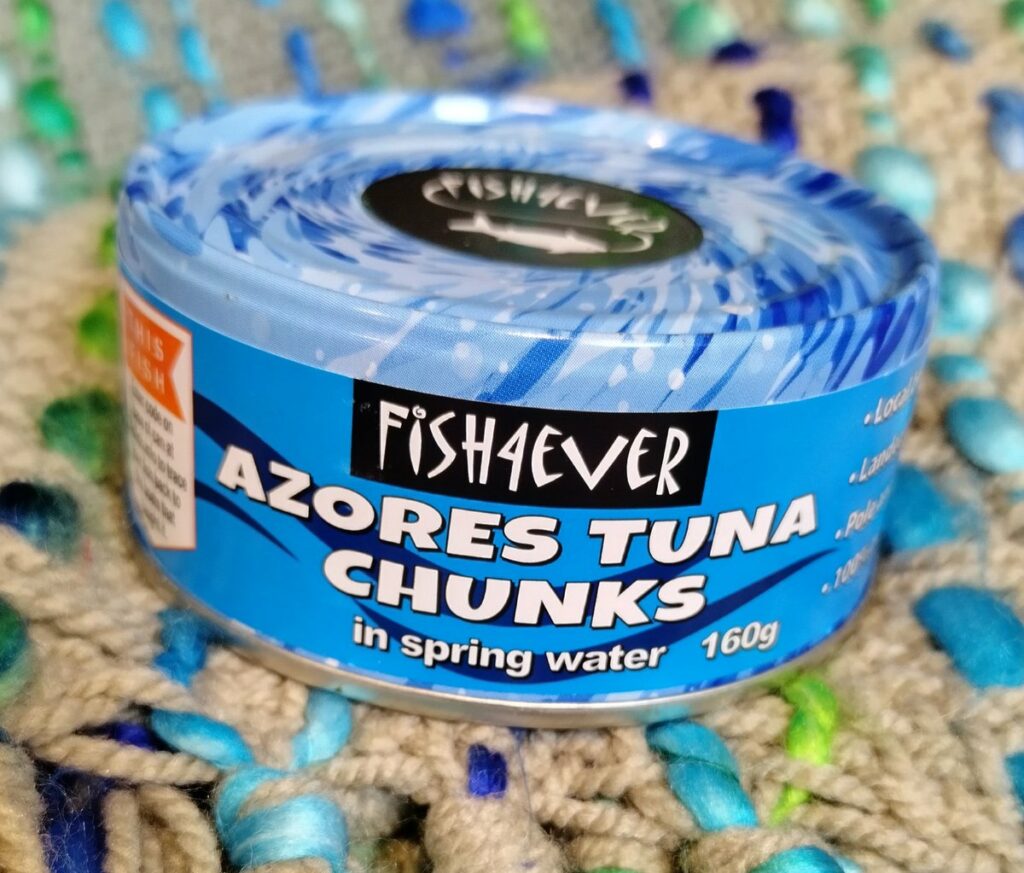
Fish4Ever
The UK’s most sustainable tinned fish.
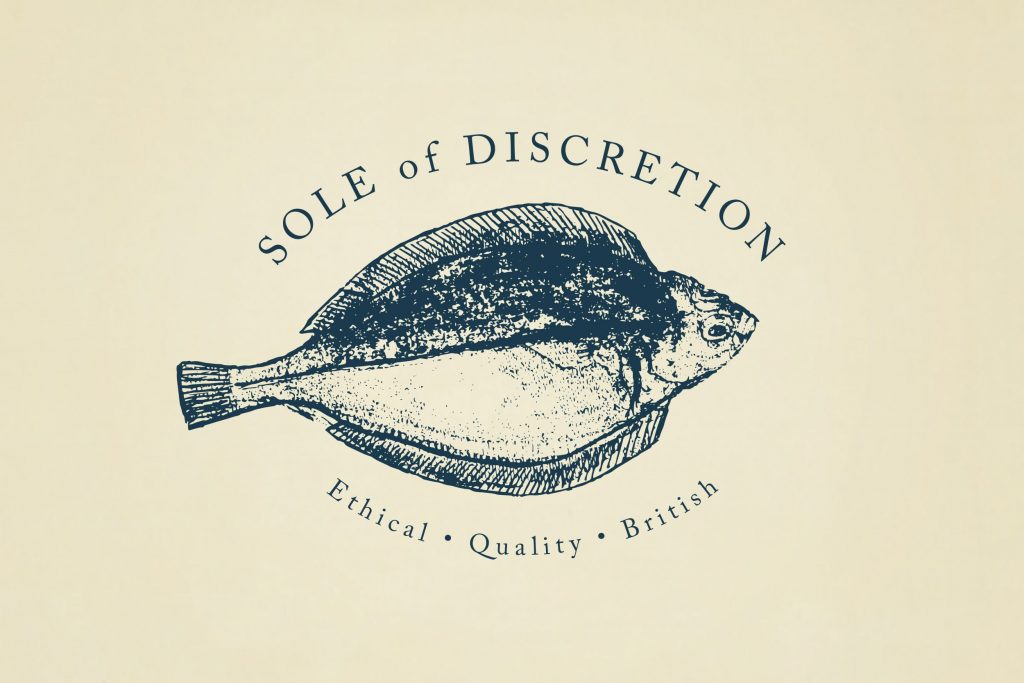
Sole of Discretion
Fresh fish, fished to the highest ethical standards.
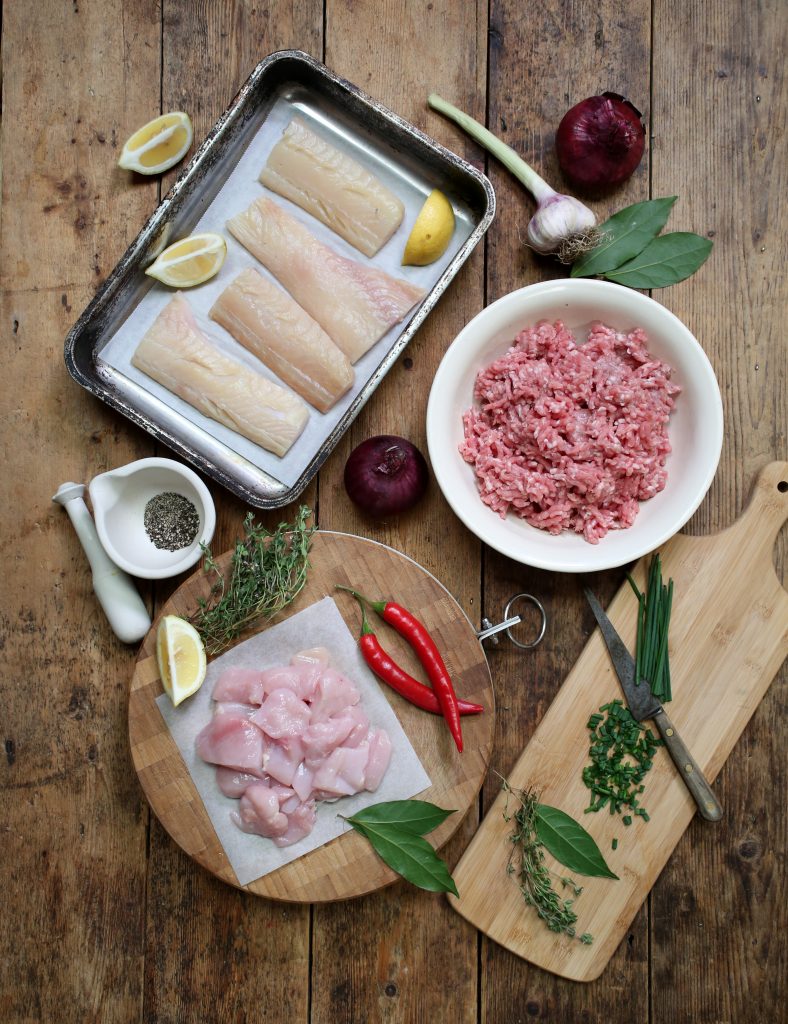
Abel & Cole
Wild or organic fish from responsibly managed fisheries and farms.
Sustainable seafood? Greenwashing
The problem is, brands put more effort into marketing products as sustainable than into genuinely making them sustainable.
For example, small-scale low impact fisheries only account for 7% of MSC-certified catches, but 47% of illustrations in their marketing, according to one report.
“This clearly shows the MSC knows what consumers expect sustainable fishing to look like and they are purposely misleading them,” says founder of Fish4Ever, Charles Redfern. “And they are not the only ones, since that cheerful skipper on a tiny boat heading out of port is the default image that many fish brands and supermarket retailers use”.
Redfern’s not the only one with these concerns. More than 90 marine conservation experts, organisations, and researchers from around the world have come together to form Make Stewardship Count.
They say: “The Marine Stewardship Council (MSC) label, which millions of consumers rely on for trusted seafood, is increasingly being awarded to fisheries that routinely catch thousands of vulnerable animals, waste excessive amounts of sea life, irreversibly damage our ecosystems, and catch overfished species.
“We are calling for urgent changes to raise the bar, ensure scientific rigour, and ensure that seafood with the MSC label actually represents the ‘gold standard of sustainability’ as advertised.”
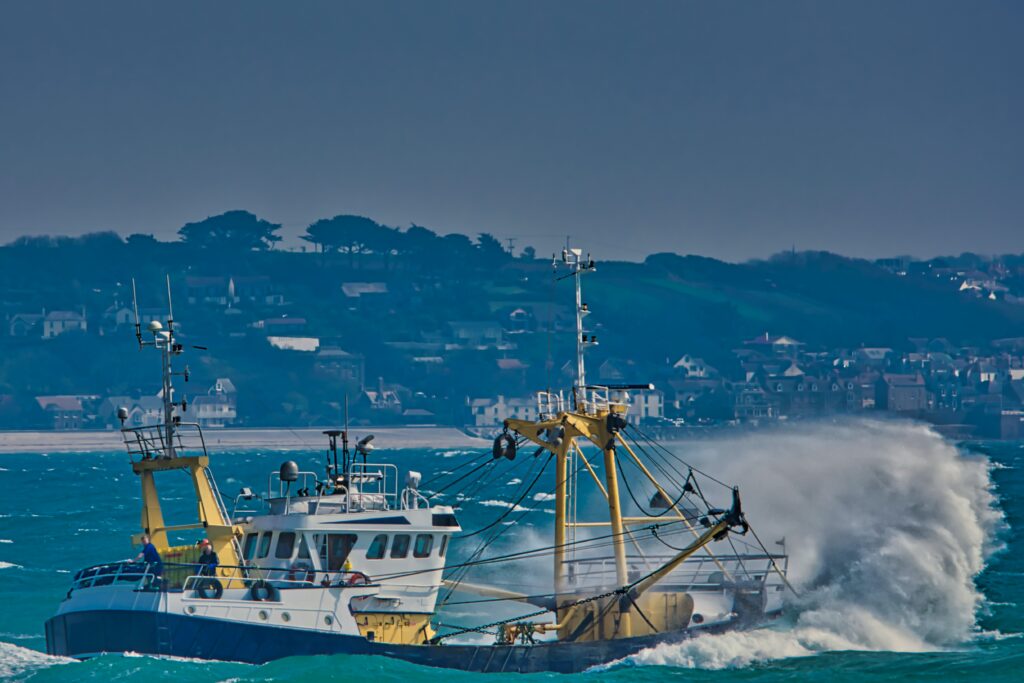
Sustainable seafood? Not quite what it says on the tin
The MSC standards are under review. Until their standards change, the MSC continues to profit. The MSC’s income last year was a huge £30 million – more than 85% of which comes from the licensing fees it charges businesses for the right to use its label.
MSC has also received millions of dollars in grant money from the Walton Family Foundation, which Wal-Mart’s founder created and his descendants govern.
So, you can understand why they might have a conflict of interest here. Tighter regulations means less fisheries licensing the logo, less donations from supermarkets – and less income.
“There is a Boris Johnson-style aspect to MSC tactics,” observes Redfern. “They initially deny or belittle the criticism levelled against them, then they start to promise some – insufficient – change at some time in the future, and then market this as a reason to continue to trust in the label”.
Supermarkets and sustainable seafood
So, the MSC makes environmentally devastating fishing practices seem acceptable to the public. And some supermarkets, keen to be seen to do the right thing, are doubling down on their support of MSC-certified fish. Tesco, for example, has set goals that 100% of some of their fish should be MSC-certified by 2025, which sounds admirable in theory.
However, the reality is that it potentially means they’re changing the labels, but not changing the biggest problems industrial fishing causes to our oceans.
The consequence of this is that the worst industrial fishing practices are allowed to continue. Suddenly, we’re in this situation where supermarkets investing in MSC could potentially accelerate the destruction of our ocean instead of protecting it. And their customers are none-the-wiser.
Tesco are not alone in this, many of the biggest frozen/fresh fish brands are doubling down on their targets of sourcing 100% MSC in a short time frame – as a key promise of their overall sustainability. Others, such as M&S are reported to be increasingly critical of the MSC while still participating in the certification.
We’ve only heard of one retailer – Bio-Coop in France – who has expressly asked suppliers to remove the MSC label from fish, due to concerns over greenwashing. This is the position taken by pioneer canned fish brand Fish4Ever, for many years now.
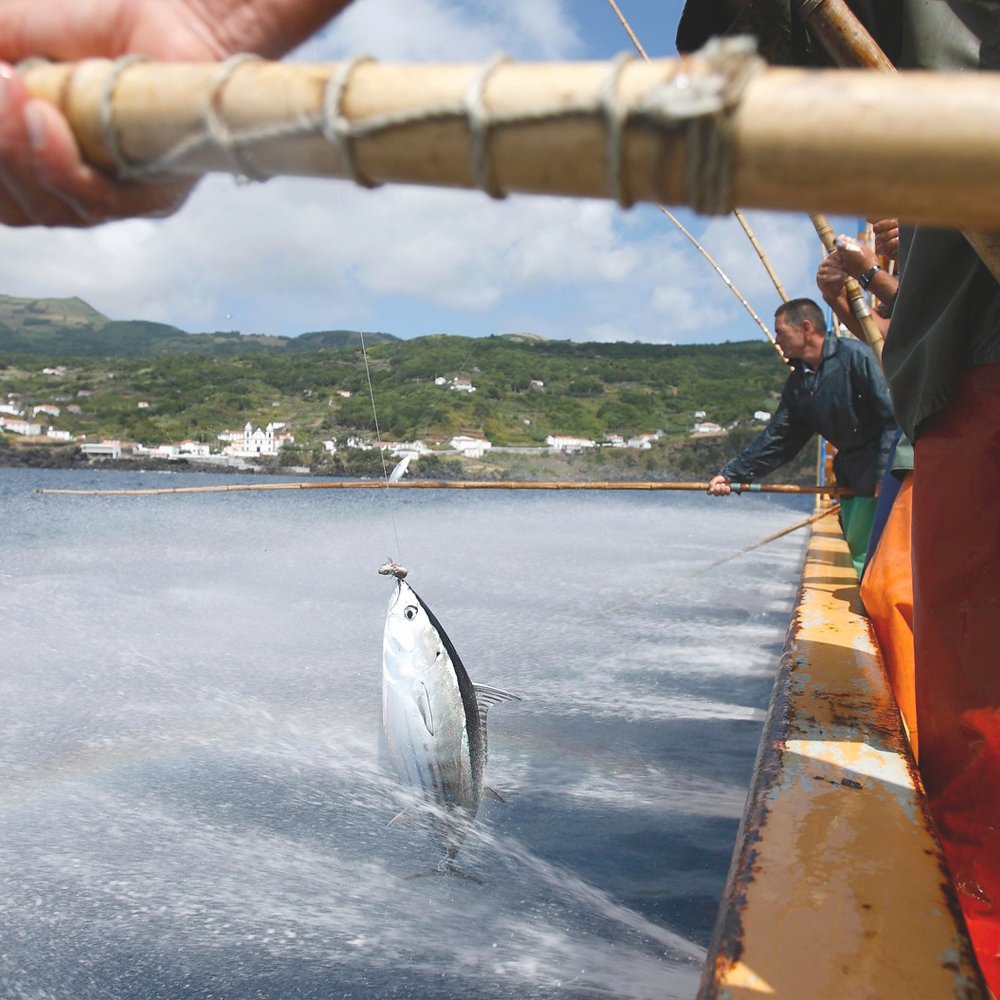
Genuinely sustainable seafood: how to source wild fish and support responsible fishers
The False Promise of Certification report concludes:
“The overarching concern is that the MSC standard is too weak; so, while some very good fisheries have been certified, so have some especially poor ones… Consumers should be able to assume that seafood with sustainable-catch labels is free of significant bycatch and that endangered, threatened or protected species have not been harmed.”
We couldn’t agree more. So, until the standards genuinely improve, here’s what you can do:
Firstly, buy less fish and buy better fish. Live Frankly endorses the Fish4Ever brand when it comes to tinned tuna, Sole of Discretion when it comes to fresh fish, and Abel & Cole for both.
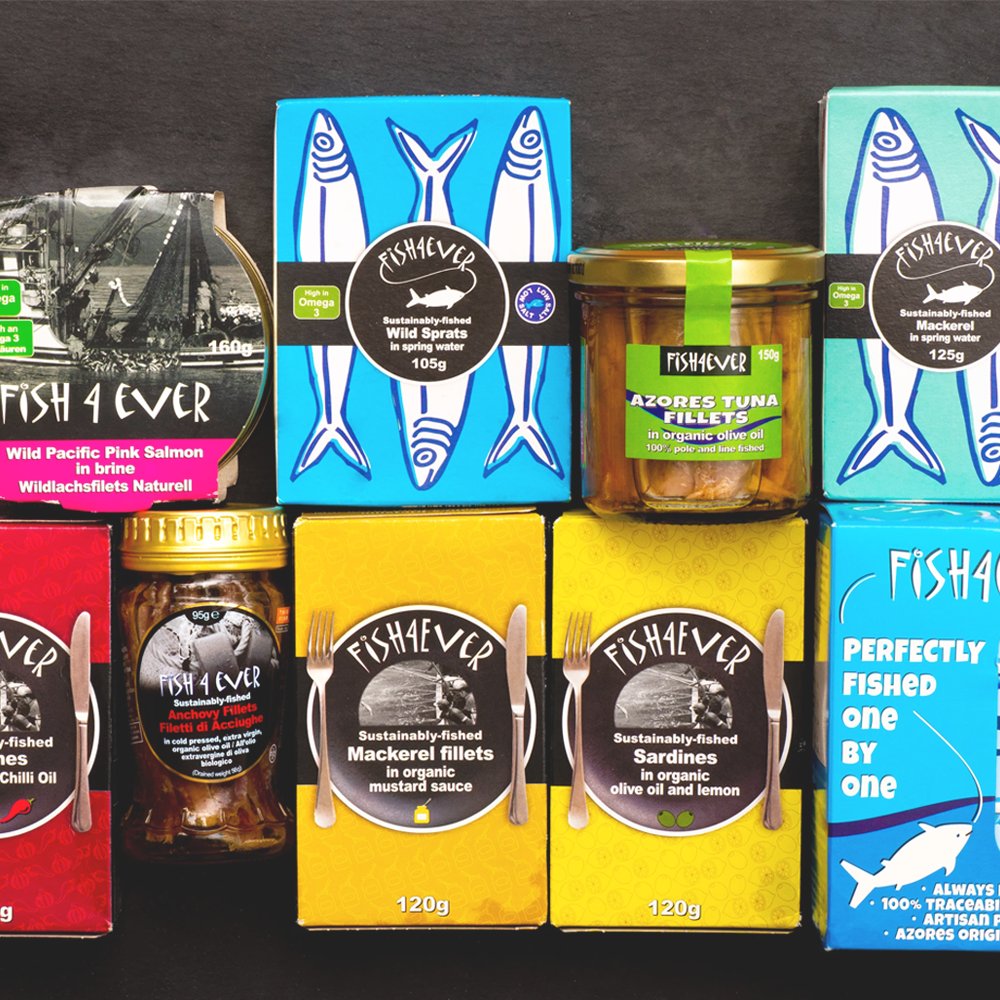
If you’re shopping from a fishmonger ask them about how and where their fish is caught. Ask them to recommend the most sustainably-caught fish if you’re unsure of the answers you’re looking for or what other questions you could ask.
If you are shopping for fresh fish from a supermarket, it takes a little bit more investigation. Ideally, again, you want to look to see how the fish is caught, but this takes a lot of research as different methods are more/less acceptable depending on the species (Yep, it’s complicated).
The Marine Conservation Society Good Fish Guide is an excellent place to start to learn about the sustainability of a specific fish, wild or farmed. But, be aware they still give an MSC certified fishery an uptick. Also, they are predominantly concerned with fish stock levels, which is important. Potentially as important is to be concerned with who the fisher is and whether they are responsible or are linked with overfishing, or causing social or ecological damage. This approach is kinder to small, locally-based fishermen who might be fishing a stock that is overfished because of industrial boats.
In the UK, we most commonly eat just five species of fish – Tuna, Salmon, Prawns, Cod and Haddock – but there are more than 150 species in our coastal waters alone, so branch out!
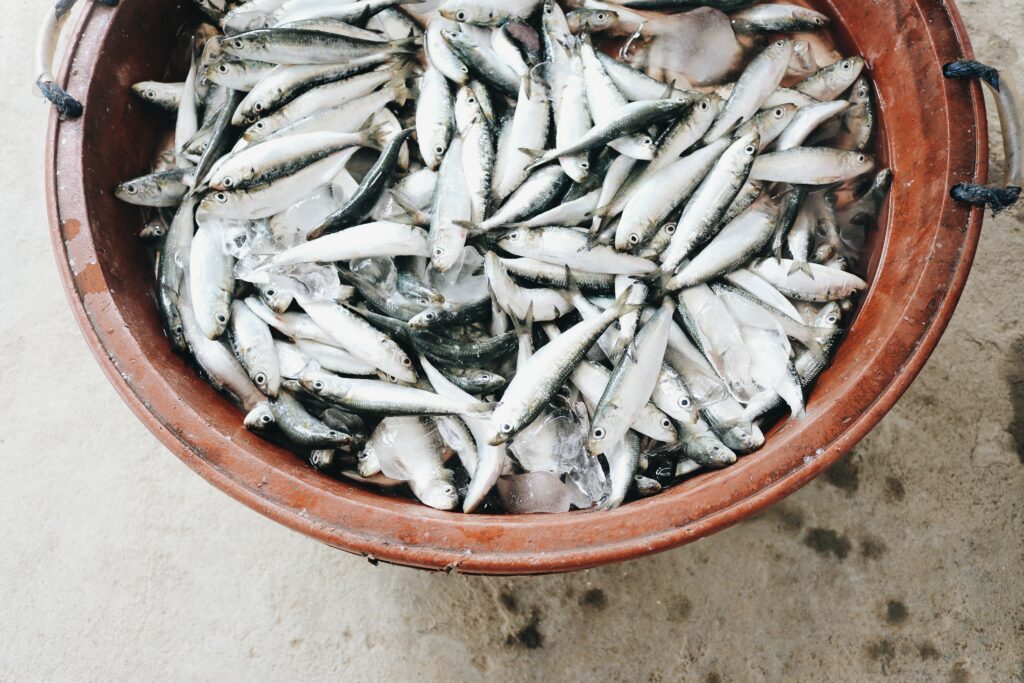
Redfern advises: “Generally small oily fish species are good – mackerel, sardines, anchovy, sprats, and herring. They are mostly abundant, quick to reproduce, and are rarely fished by bad methods in terms of by-catch or endangered species.”
Probably, the most sustainable seafood you can eat is mussels. They passively grow on a rope so you can go wild for Moules Frites.
One thing not to do is read this and give up! Don’t just buy any old fish because you think ‘it’s all the same’ and you can’t trust anyone. You can. We’ve shown you how here.
Small, sustainable fishing businesses are working hard to prove fishing can be done better every day. There is very likely a twinkly-eyed (or grumpy) skipper and a team on every one of these boats that your support makes a huge difference to.
1DATA taken from Acoura public MSC certification report march 2018


